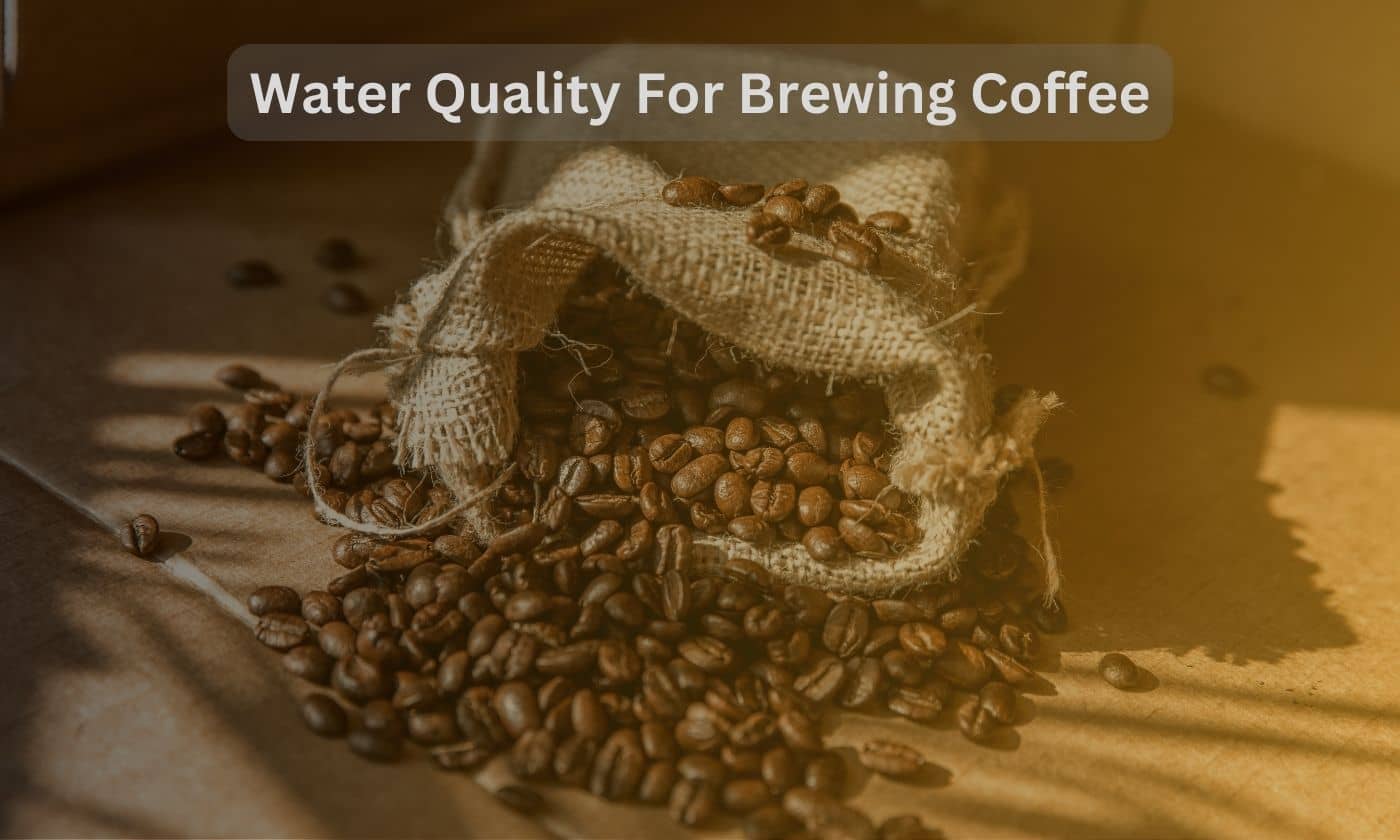Welcome to the fascinating realm of coffee brewing, where even the simplest elements can wield a profound impact on your daily cup of joy. Among these crucial factors, one that often goes overlooked is the quality of water used for brewing coffee. It may seem surprising, but water plays a pivotal role in shaping the very essence of your coffee experience.
In this insightful article on Coffee Bean Hours, we will embark on a journey to explore the paramount importance of water quality for brewing coffee, and how it can significantly affect the taste, aroma, and overall enjoyment of your coffee.
The composition of water varies from one location to another, and the presence of impurities can greatly influence the flavor profile of your brew. Understanding the effects of minerals, such as calcium and magnesium, will shed light on the ideal mineral content required for the best extraction.
Join us as we delve into the science behind crafting the perfect cup by optimizing water quality for brewing coffee. Discover how a deeper understanding of water composition can unlock the full potential of your cherished coffee beans and elevate your coffee experience to new heights.
Table of Contents
Understanding Water Composition
Water is not a simple element; it contains minerals, chemicals, and impurities that can affect your coffee taste. The composition of water varies depending on its source and treatment processes. The key factors that influence water quality for brewing coffee include:
A. Hardness:
Water hardness refers to the concentration of minerals, primarily calcium and magnesium, in the water. Hard water can have a negative impact on coffee extraction and taste.
B. pH Level:
The pH level measures the acidity or alkalinity of water. Ideally, water for coffee brewing should have a pH level of around 7, which is neutral.
C. Total Dissolved Solids (TDS):
TDS indicates the total amount of dissolved solids, such as minerals, in the water. TDS can affect the body and mouthfeel of the coffee.
D. Chlorine and Chloramine:
Chlorine and chloramine are commonly used as disinfectants in tap water. These chemicals can impart undesirable flavors to your coffee.
E. Odor and Taste:
Water with strong odors or tastes can mask the delicate flavors of coffee, affecting the overall experience.
Importance of Filtered Water
To achieve the best results in coffee brewing, using filtered water is highly recommended. Filtration systems can help reduce water impurities, such as chlorine, sediment, and some minerals, improving the water’s taste and smell.
There are several types of water filters available, including activated carbon filters, reverse osmosis filters and ceramic filters. Each type of filter offers different levels of water purification, so choosing the right one depends on your water source and preferences.
Bottled Water vs. Tap Water
Many coffee enthusiasts wonder whether using bottled water or tap water is better for brewing. The answer depends on the quality of your tap water. In some regions, tap water may be high in minerals or contain strong odors and tastes, which can negatively impact your coffee.
If your tap water is not suitable for brewing, using bottled or filtered water is a convenient alternative. However, not all bottled waters are created equal, so it’s essential to read the label and select a brand with a balanced mineral composition and a neutral pH level.
The Specialty of Third Wave Coffee
The third-wave coffee movement, which focuses on coffee as an artisanal product, emphasizes the significance of water quality in brewing. Baristas and coffee professionals in the third wave are meticulous about using the right water to enhance the unique characteristics of each coffee bean.
To create a harmonious coffee experience, they often adjust the water’s mineral content to suit the specific coffee they are brewing. This level of precision highlights the importance of water in the world of specialty coffee.
Experimenting with Water Profiles
For adventurous coffee enthusiasts, experimenting with water profiles can be a thrilling journey. By adjusting your water’s mineral content and pH level, you can bring out different flavors and complexities in your coffee.
Different coffee beans from various origins and roasts may shine with specific water compositions. The key is to start with a baseline of filtered water and then gradually introduce small changes to observe how they affect the taste. Keep a record of your experiments to identify your preferred water profile for different coffee beans.
DIY Water Filtration
If investing in a sophisticated water filtration system is not feasible, there are simple DIY methods to improve your tap water for coffee brewing:
A. Boiling and Cooling: Boiling tap water and letting it cool can help reduce chlorine content, which may improve the taste.
B. Charcoal Filtration: Using activated charcoal sticks or tablets in water can help remove impurities and odors.
C. Mineral Additives: Some coffee enthusiasts add specific minerals, such as magnesium sulfate (Epsom salt) or calcium carbonate (crushed eggshells), to their water to create a custom water profile.
The Balance of Water Quality and Coffee Beans
While water quality significantly impacts the taste of your coffee, it is essential to remember that the coffee beans themselves play a crucial role.
High-quality, freshly roasted coffee beans will provide the best foundation for an exceptional cup of coffee.
Water quality should complement the flavors and characteristics of the coffee, not overpower or overshadow them.
Conclusion
In the world of coffee brewing, water quality is an often overlooked but essential factor in achieving perfection. Understanding the composition of water, using filtered water, and experimenting with water profiles can elevate your coffee experience to new heights.
As you delve deeper into the art of coffee brewing, remember that water is the canvas upon which the flavors of your coffee beans are painted.
Embrace the adventure of exploring water quality for brewing coffee, and unlock the full potential of your favorite brews.
For more in-depth knowledge about coffee beans and brewing methods, don’t forget to check out the ‘Coffee Bean‘ page on the Coffee Bean Hours website.
